The LECACs have a common set of goals:
- To establish annual benchmarks of school readiness skills of children entering kindergarten.
- To conduct a periodic local needs assessment concerning the quality and availability of early childhood education and development programs and services
- To develop an action plan for increasing the overall participation of children in existing programs, including outreach to special populations, elevating the quality of existing programs and coordinating the RTT-ELC goals and objectives at the local level.
- To coordinate early childhood initiatives and reforms locally.
- To report progress or challenges to the Governor’s State Advisory Council on Early Childhood Education and Care.
LECAC Resources and Highlights
- Local ECAC Overviews
- Allegany County
- Anne Arundel County
- Calvert County
- Carroll County
- Cecil County
- Charles County
- Dorchester County
- Frederick County
- Harford County
- Howard County
- Montgomery County
- Prince George's County
- Somerset County - Judy Center
- Somerset County - Early Childhood
- St. Mary's County
- Washington County
The LECAC Chairs/Co-Chairs Contact List (PDF) provides names and contact information for each county.
Download the recommended Local ECAC Bylaws Template.
For more information about the Local ECAC, please email: angeline.bishop-oshoko@maryland.gov.
Visit the MSDE Grants website to apply for the Local Early Childhood Advisory Council System Improvement Grant FY26

